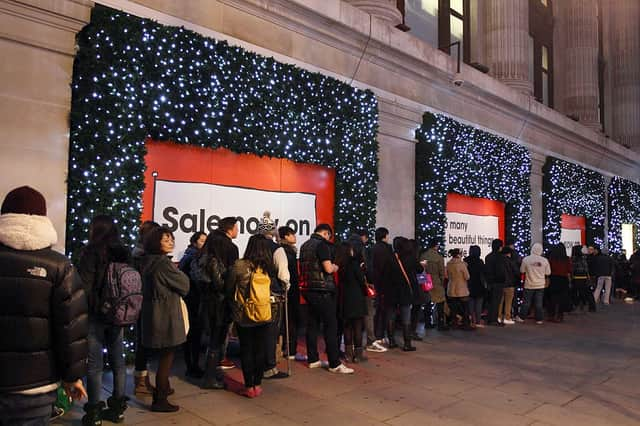This is why Boxing Day is called Boxing Day - and traditions explained


The day after Christmas Day can be an eventful one.
It is a day which sees many emerge from their Christmas cocoons after the non-stop festive fanfare of opening presents, clinking of glasses, turkey and the Queen’s speech.
A time for Santa Claus and his little helpers to put their feet up, take a break and reflect on the monumental effort which went into making this Christmas the best one yet.
Advertisement
Hide AdAdvertisement
Hide AdIt’s a Bank Holiday in the UK, just like Christmas Day, with many making a dash for the sales, stepping outside for long walks with friends and family or even attending a sporting event.
But why is 26 December called Boxing Day?
Here we explore its origins.
Why is Boxing Day called Boxing Day?
In spite of its name, there is no direct link to the sport of fisticuffs, repackaging of presents or even stuffing all your prized possessions into boxes ready for the big house move.
Instead, its name seems to stem from charitable acts from the Victorian age.
Traditionally, the day after Christmas Day was a day off for servants who would often receive a special festive box from their masters in recognition of their loyal service.
Advertisement
Hide AdAdvertisement
Hide AdHaving upheld their duties on Christmas Day, the servants would return home to see their families with boxes of gifts, sometimes money and leftover food from their masters.
The theory has stood the test of time thanks, largely, to Charles Dickens’ tale of Ebenezer Scrooge in the 1843 novel A Christmas Carol.
This gesture from employer to employee can still be considered ongoing, with some employers distributing Christmas bonuses to its staff to this day.
Is there an alternative theory as to why Boxing Day is called Boxing Day?
Advertisement
Hide AdAdvertisement
Hide Ad